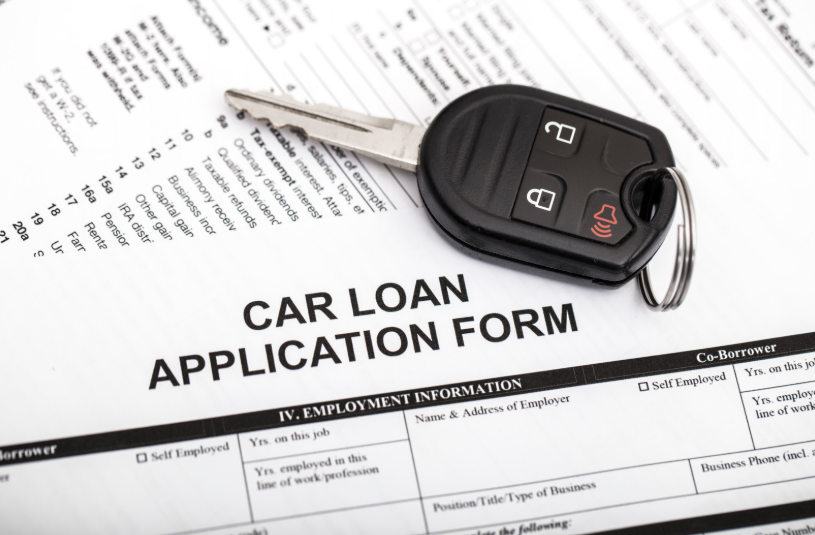Getting approved for car financing when you have a low credit score can feel like an uphill battle. Many people assume that poor credit automatically disqualifies them from securing reasonable auto financing, but this simply isn’t true. In 2024, approximately 21% of auto loans were approved for borrowers with credit scores below 600, proving that opportunities exist even for those facing credit challenges.
The key to success lies in understanding how the auto financing process works, preparing your application strategically, and knowing where to look for lenders who specialize in working with low-credit borrowers. While you may face higher interest rates or require a larger down payment, securing car financing with poor credit is absolutely achievable with the right approach and preparation.
This comprehensive guide will walk you through proven strategies to improve your chances of approval, from understanding what lenders look for beyond credit scores to exploring alternative financing options. We’ll cover practical steps you can take before applying, during the application process, and after approval to set yourself up for long-term financial success.
Understanding Your Credit Score and Its Impact
Your credit score represents your creditworthiness to potential lenders, but it’s not the only factor they consider when evaluating auto loan applications. Credit scores typically range from 300 to 850, with scores below 600 generally considered poor or fair credit. However, auto lenders often have more flexible requirements than other types of creditors because the vehicle itself serves as collateral.
Most lenders categorize credit scores into ranges: excellent (750-850), good (700-749), fair (650-699), and poor (300-649). If your score falls in the lower ranges, you’ll likely face higher interest rates, but this doesn’t mean approval is impossible. Auto lenders understand that credit scores don’t tell the complete story of your financial situation.
Recent financial hardships, medical bills, or temporary unemployment can significantly impact your credit score without reflecting your current ability to make payments. Many specialized lenders focus more heavily on your current income stability, employment history, and debt-to-income ratio than solely on your credit score.
Understanding where your credit stands also helps you set realistic expectations. Request your free credit report from all three major bureaus and review it carefully for errors or outdated information that might be unnecessarily lowering your score.
Income and Employment Verification Strategies
Lenders want to see stable, verifiable income that demonstrates your ability to make monthly payments consistently. For auto loans, most lenders prefer to see employment history of at least six months to two years with your current employer, though some specialized lenders may accept shorter employment periods if your income is sufficient.
Prepare comprehensive documentation of your income sources, including recent pay stubs, tax returns, and bank statements. If you’re self-employed or work multiple jobs, gather 1099 forms, profit and loss statements, and any contracts showing ongoing work relationships. The more documentation you can provide, the stronger your application becomes.
Your debt-to-income ratio plays a crucial role in approval decisions. Lenders typically prefer this ratio to be below 20% for auto loans, meaning your total monthly debt payments shouldn’t exceed 20% of your gross monthly income. If your ratio is higher, consider paying down existing debts before applying or look for a less expensive vehicle.
Consider having a co-signer if your income alone doesn’t meet lender requirements. A co-signer with good credit and stable income can significantly improve your chances of approval and potentially secure better interest rates. Remember that co-signers are equally responsible for the loan, so choose someone who understands this commitment.
Down Payment and Trade-In Considerations

A substantial down payment can be your strongest tool for securing approval with poor credit. Most subprime lenders require down payments of 10-20% of the vehicle’s value, but putting down more can significantly improve your approval odds and reduce your monthly payments.
Here are key benefits of a larger down payment:
- Reduces the loan amount and lender risk
- Demonstrates your commitment to the purchase
- May qualify you for better interest rates
- Provides immediate equity in the vehicle
- Lowers your monthly payment obligations
If you have a trade-in vehicle, research its current market value before visiting dealerships. Understanding your vehicle’s worth helps you negotiate fairly and ensures the trade-in value is applied correctly to your down payment. Even if your trade-in has mechanical issues, it may still have value that can contribute to your down payment.
Consider selling your current vehicle privately if it’s worth significantly more than trade-in value. While this requires more effort, private sales typically yield 15-25% more than trade-in values, giving you additional down payment funds that could make the difference in securing approval.
Choosing the Right Vehicle for Your Situation
Vehicle selection plays a critical role in financing approval for low-credit borrowers. Lenders view certain types of vehicles as better investments than others, which directly impacts their willingness to approve your application. Certified pre-owned vehicles often represent the sweet spot for subprime borrowers, offering reliability without the steep depreciation of new cars.
Focus on vehicles that are 2-4 years old with moderate mileage, as these typically have the best loan-to-value ratios and retain their worth better than older vehicles. Lenders often have restrictions on the age and mileage of vehicles they’ll finance, with many refusing to finance vehicles over 7-10 years old or with more than 100,000 miles.
Popular, reliable brands like Toyota, Honda, Ford, and Chevrolet typically have better resale values and are viewed more favorably by lenders. Avoid luxury vehicles, modified cars, or unusual models that might be difficult to resell if repossession becomes necessary.
Keep your vehicle choice realistic relative to your income. A good rule of thumb is that your total monthly vehicle expenses (payment, insurance, maintenance) shouldn’t exceed 20% of your monthly take-home pay. This conservative approach not only improves approval chances but also ensures you can comfortably afford the payments long-term.
Working with Specialized Lenders
Traditional banks and credit unions may not be your best option when dealing with poor credit. Specialized subprime lenders focus specifically on working with borrowers who have credit challenges and often have more flexible approval criteria. These lenders understand that credit scores don’t always reflect current financial stability.
Buy-here-pay-here dealerships offer another option, though they typically charge higher interest rates and may have limited vehicle selections. However, they often approve borrowers that other lenders reject and may report positive payment history to credit bureaus, helping you rebuild credit over time.
Online lenders have become increasingly popular for auto financing, often providing pre-approval decisions within minutes and competitive rates for subprime borrowers. Many online platforms allow you to compare multiple offers simultaneously without impacting your credit score through multiple hard inquiries.
Credit unions frequently offer more personalized service and may be willing to work with members who have banking relationships despite poor credit scores. If you’re not already a credit union member, research local options that you might be eligible to join based on your employer, location, or other affiliations.
At DallasAutos4Less, we specialize in helping customers secure financing regardless of their credit situation. Our experienced team works with multiple lenders to find solutions that fit your specific circumstances and budget requirements.
The Application Process: Best Practices

Timing your application strategically can improve your approval chances significantly. Submit applications within a focused 14-day window, as credit scoring models typically count multiple auto loan inquiries within this timeframe as a single inquiry, minimizing the impact on your credit score.
Complete applications thoroughly and honestly, providing all requested documentation promptly. Incomplete applications often result in automatic denials, while providing comprehensive information upfront demonstrates your seriousness and can speed up the approval process.
Sarah Martinez, a customer service representative from Houston, successfully secured financing after being initially denied by two lenders. She spent three weeks gathering comprehensive income documentation, saved an additional $2,000 for her down payment, and applied through our financing program. Her persistence paid off with approval for a reliable 2021 Honda Civic at a competitive rate.
Be prepared to provide additional documentation if requested. Lenders may ask for proof of residence, references, or explanations for specific credit report items. Responding quickly and completely to these requests shows your commitment and keeps your application moving forward.
Consider getting pre-approved before shopping for vehicles. Pre-approval gives you a clear budget, strengthens your negotiating position, and streamlines the purchase process once you find the right vehicle.
Building Your Case: Documentation and Presentation
Your loan application tells a story about your financial responsibility and ability to repay the loan. Present this story clearly and professionally by organizing all documentation before beginning the application process. Create a folder with pay stubs from the last three months, bank statements, tax returns, and any other income documentation.
Write a brief letter explaining any negative items on your credit report, particularly if they resulted from circumstances beyond your control like medical emergencies, job loss, or divorce. Keep explanations factual and brief, focusing on how your current situation has improved and your commitment to making payments on time.
Demonstrate financial stability through consistent banking relationships, regular savings deposits, or other evidence of money management skills. Even small amounts of consistent savings can show lenders that you live within your means and plan for the future.
If you’ve successfully managed other types of payments (rent, utilities, phone bills) consistently, gather documentation of this payment history. Some lenders consider alternative credit data when traditional credit scores don’t tell the complete story of your financial responsibility.
Alternative Financing Options
Traditional dealer financing isn’t your only option when seeking auto loans with poor credit. Peer-to-peer lending platforms sometimes offer competitive rates for borrowers with challenged credit, particularly if you have strong income documentation or can provide detailed explanations for credit issues.
Family financing arrangements can work well if structured properly with written agreements, payment schedules, and clear consequences for missed payments. This option often provides lower interest rates while helping you rebuild credit if payments are reported to credit bureaus through services like LendingKite or National Family Mortgage.
Lease-to-own programs offer another alternative, though they typically cost more over time than traditional financing. These programs may accept applicants with poor credit and often include warranties and maintenance coverage. Read all terms carefully and understand the total cost before committing.
Consider postponing your purchase if possible to improve your credit score and save additional down payment funds. Even three to six months of focused credit improvement can significantly impact your financing options and save thousands of dollars over the life of your loan.
Our credit application process is designed to work with borrowers at all credit levels, connecting you with lenders who specialize in your specific situation while ensuring you understand all available options.
Post-Approval: Managing Your Auto Loan Successfully
Securing approval is just the beginning of your financial responsibility. Set up automatic payments to ensure you never miss a due date, as consistent on-time payments are crucial for rebuilding your credit score. Most lenders offer interest rate discounts for automatic payment enrollment, saving you money while protecting your credit.
Create a budget that accounts for all vehicle-related expenses beyond your monthly payment, including insurance, maintenance, fuel, and repairs. Vehicle ownership costs typically extend well beyond the monthly payment, and failing to budget for these expenses can lead to financial stress.
Monitor your credit score regularly to track improvement from your consistent payment history. Most auto loans report to all three credit bureaus, so positive payment history can significantly boost your score over time. Many credit monitoring services offer free monthly score updates and alerts about changes to your credit report.
Consider refinancing options once your credit score improves. After 12-18 months of consistent payments, you may qualify for better interest rates with different lenders, potentially saving hundreds or thousands of dollars over the remaining loan term.
Build an emergency fund to cover unexpected expenses and prevent missed payments during financial challenges. Even small amounts saved consistently can provide a crucial buffer that protects both your vehicle and your improving credit score.
Frequently Asked Questions
What credit score do I need for auto financing approval?
While there’s no universal minimum credit score for auto loans, most subprime lenders work with borrowers who have scores as low as 500-550. However, lower scores typically result in higher interest rates and stricter terms. Lenders also consider factors like income stability, employment history, and down payment amount, so a low credit score doesn’t automatically disqualify you from financing.
How much should I put down on a car with bad credit?
Most subprime lenders require down payments of 10-20% of the vehicle’s purchase price, but putting down more can significantly improve your approval chances and loan terms. A larger down payment reduces the lender’s risk, may qualify you for better interest rates, and lowers your monthly payment obligations. If possible, aim for 20% or more to maximize your financing options.
Can I get approved for auto financing with no credit history?
Yes, many lenders work with borrowers who have limited or no credit history, though you may need additional documentation like proof of income, employment verification, or a co-signer. Lenders may also consider alternative credit data like rental payment history, utility payments, or banking relationships. Having a stable job and sufficient income often matters more than credit history for auto loans.
Will applying for auto loans hurt my credit score?
Auto loan applications result in hard credit inquiries, which can temporarily lower your credit score by a few points. However, credit scoring models typically count multiple auto loan inquiries within a 14-day window as a single inquiry, so shopping around won’t significantly damage your score if you apply within this timeframe. The temporary impact is usually minimal compared to the long-term benefits of establishing a positive payment history.
How long does the auto loan approval process typically take?
The approval timeline varies depending on the lender and your application completeness. Online lenders and some dealers can provide approval decisions within minutes for straightforward applications, while traditional banks may take several days. Complex applications requiring additional documentation or manual underwriting can take up to a week. Having all your documentation prepared in advance significantly speeds up the process.
Ready to Finance Your Next Vehicle with Confidence?

Securing auto financing with low credit scores is challenging but entirely achievable with the right preparation and approach. Focus on demonstrating current financial stability through steady income, employment history, and a substantial down payment while working with lenders who specialize in subprime borrowers.
Remember that your credit score is just one factor lenders consider, and many successful borrowers have overcome poor credit to secure reliable transportation. Take action today by gathering your documentation, researching your vehicle options, and connecting with experienced professionals who can guide you through the process.
At DallasAutos4Less, our team is ready to help you navigate the financing process and find a solution that fits your budget and rebuilds your financial future.
About DallasAutos4Less
At DallasAutos4Less, we make it easy to get behind the wheel of a quality used vehicle, no matter your credit situation. Our in-house auto financing options are designed to work with all credit levels, including no credit or challenged credit. With over a decade of experience in the Dallas-Fort Worth area, we’ve helped thousands of drivers get approved and drive away in dependable cars, trucks, and SUVs.
Our inventory includes a wide selection of affordable, late-model vehicles that are inspected and ready to go. Whether you’re looking for a fuel-efficient sedan, a family-friendly SUV, or a reliable work truck, you’ll find options that fit your needs and budget. Our in-house financing makes the buying process simple with flexible payment plans, low down payment options, and fast approvals, no banks needed.
Contact DallasAutos4Less today at (469) 298-3118 to find out how easy it is to drive off in your next vehicle. Let us show you how our buy here, pay here program can help you rebuild your credit while getting the transportation you need. We’re here to get you approved and on the road, without the hassle.
